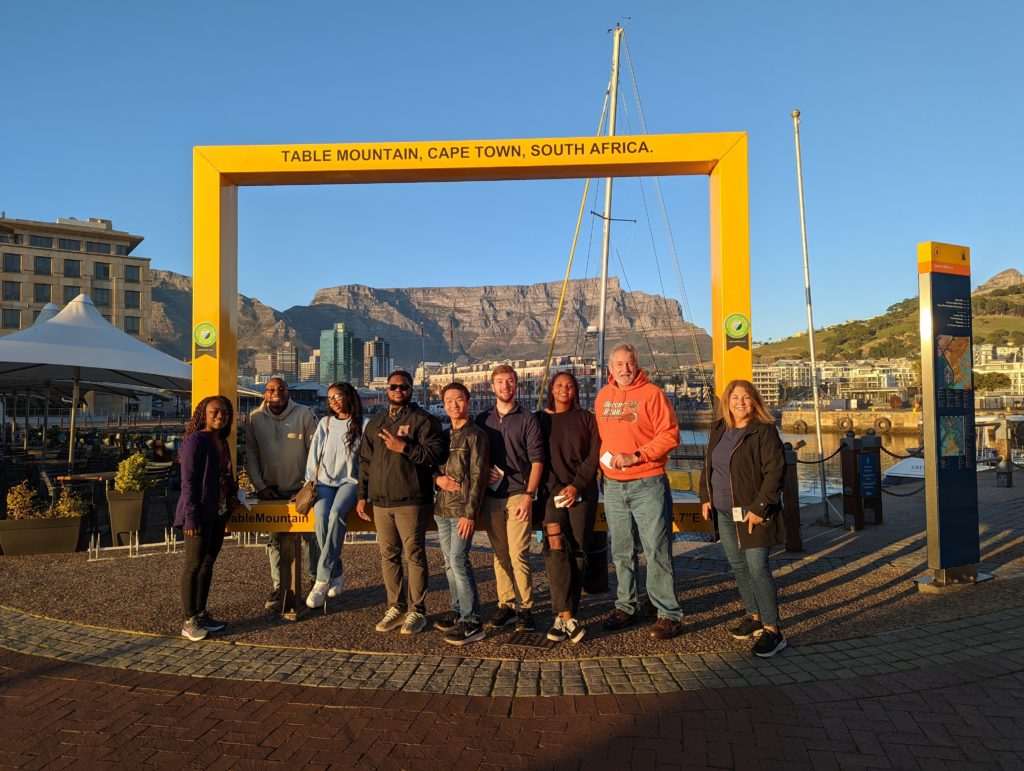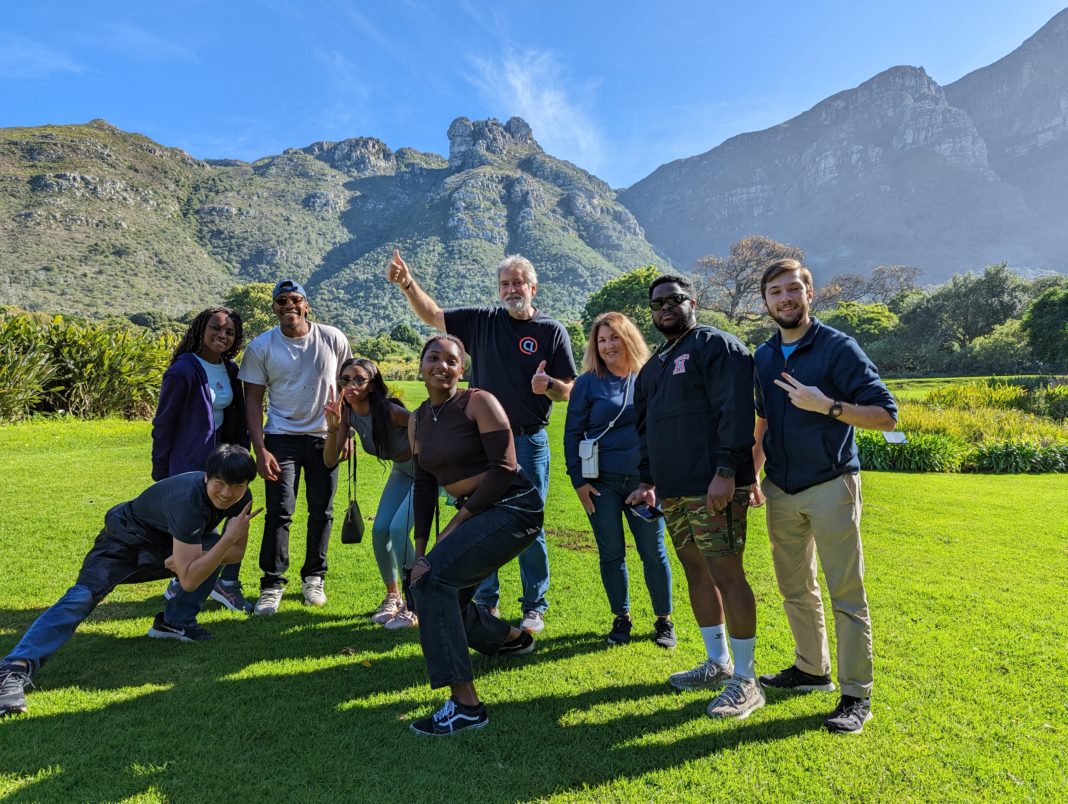Children in Cape Town, South Africa, were introduced to the world of coding and new possibilities for their futures during a Mercer On Mission (MOM) trip this summer.
Dr. Bob Allen, computer science professor and chair, and Dr. Susie Morrissey, assistant professor in the College of Education, led seven Mercer students in teaching STEAM (science, technology, engineering, arts and math) lessons to children at a community center called Way of Life University.
The idea for this computer science-themed program was sparked during another MOM trip. Students in the Mercer Service Scholars program traveled to Cape Town in 2018 to do economic development work. Computer science major Will Darragh, now a Mercer alumnus and Fulbright awardee, met an educator and entrepreneur named Filbert Mushiringi who was providing after-school computer science lessons to kids in the Khayelitsha township, Dr. Allen said.
Upon returning to Macon, Darragh and Dr. Allen discussed building a computer science MOM program to help Mushiringi with his mission. The first trip was hosted in 2019, but COVID-19 kept it from happening in 2020 and 2021.
Prior to the 2022 trip, the Mercer group spent two weeks on the Macon campus preparing and practicing their lessons, including by teaching them to children attending Mercer’s Creative Computer Camps. They also set up an online classroom with all the resources they would need using Replit, a cloud-based interface for writing and running programs.
Once in Cape Town, the Mercer team used the coding environment Jeroo.org and Python’s Turtle Graphics package to teach basic programming skills.
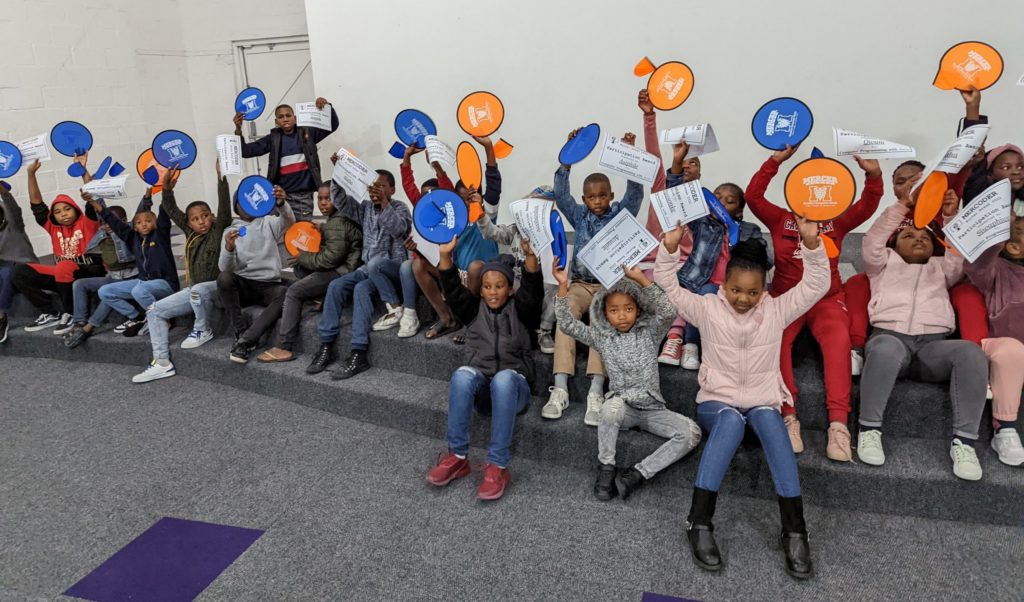
“The township kids, they were just glowing,” Dr. Allen said. “They’d never written code before. They’d never told the computer what to do. When they found a way to make something happen, they lit up. Some of them went really far, and it was amazing that they could do some of the things they were doing. They were brainstorming and problem-solving and excited about their ability to control what was on the screen.”
The Mercerians worked with middle school students the first week and high school students the second week. For the third week, some of the participants from each group were invited to return and take a deeper dive into topics of their interest. In addition to using Jeroo and Turtle Graphics, they used Python to create images and animations on a LED light board. One girl wanted to make a dog, and she was thrilled to be able to make it wag its tail through code, Dr. Allen said.
“I think the most rewarding part was seeing them get it, seeing them be able to complete the task by themself,” said Samone Clark, a rising senior majoring in computer engineering. “Toward the end of the week, seeing the progress they made — that was amazing. That made me know that what we were doing was actually having an impact on them.”
One thing that surprised the Mercer team members was the scheduled electricity blackouts, but they adapted quickly. During those periods and times of spotty internet, they led the kids in “unplugged” lessons about computer science concepts, Dr. Allen said. For one activity, the South African learners “programmed” a human “robot” to perform tasks within a grid drawn on the floor, and they also deciphered numeric encodings of simple graphics with just paper and pencils. The participants also saw a drone in action.
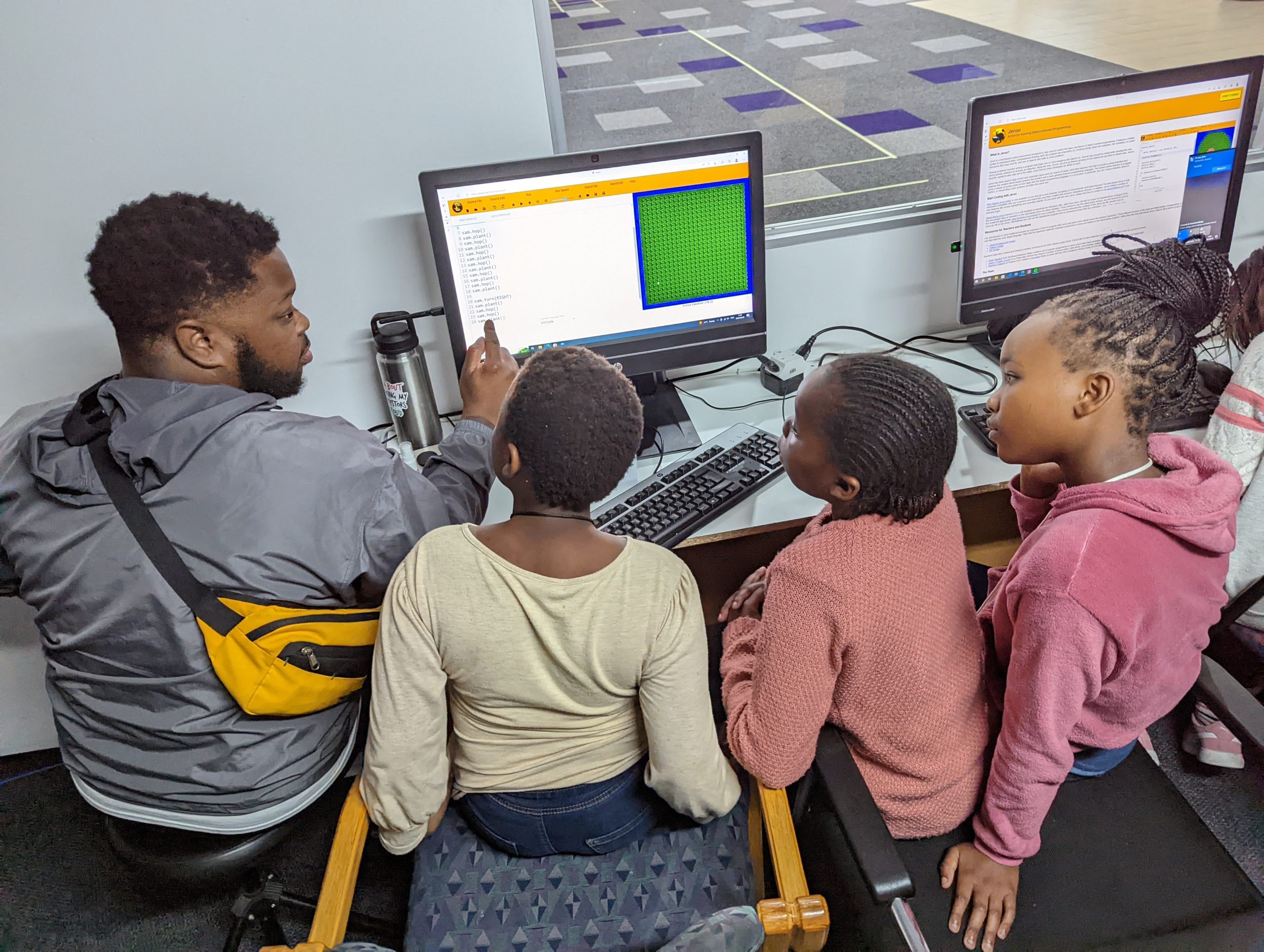
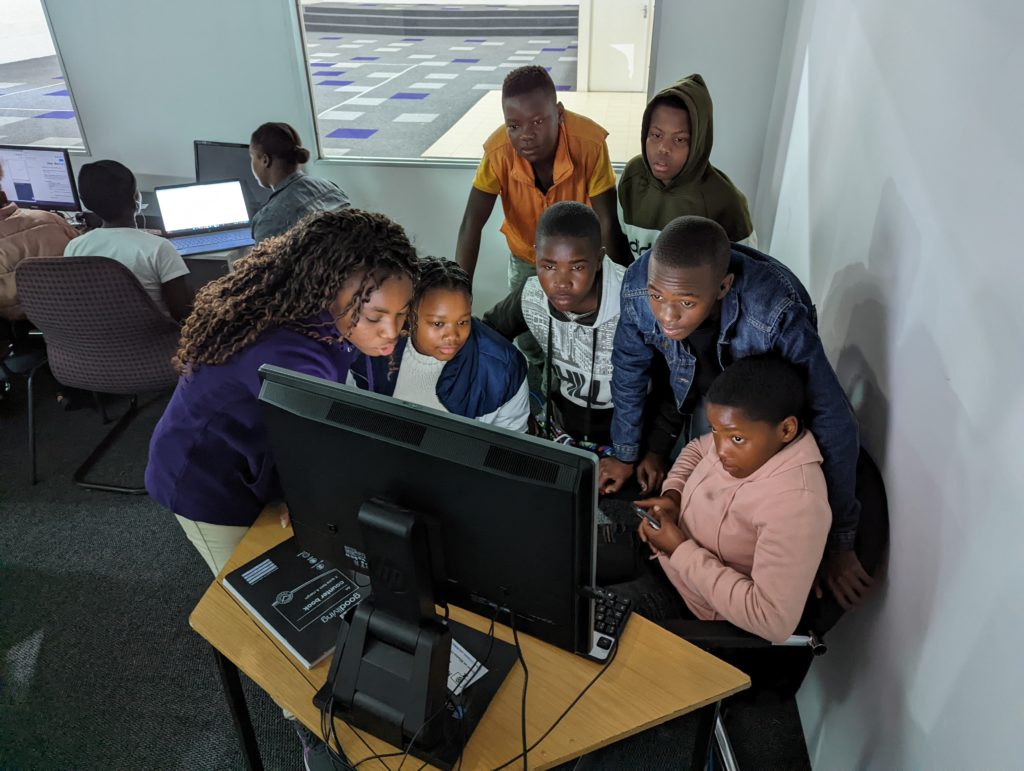
“The Mercer students did a great job with the kids,” Dr. Morrissey said. “They were really good at working with them and very patient. Our Mercer students learned some of the language, so they could communicate better with them.”
The MOM trip was timed to coincide with the Cape Town students’ three-week winter break. The number of participants grew each week as word spread about the work the Mercer group was doing. At one point, they had as many as 32 students, Dr. Allen said.
Learning these computer science skills showed the participants what they’re capable of, built their confidence, and opened their eyes to future careers they could pursue, Dr. Morrissey said.
“I wanted to have an opportunity to mentor some kids,” Clark said. “As an African-American woman, I didn’t see many women in the field (growing up). I think it’s very important for them to learn how to do computer skills. Coding is a very big job market in the industry. It’s a really great opportunity for kids to explore.”
Outside their lessons, the Mercer group toured the townships; visited the District 6 Museum and Robben Island, where Nelson Mandela was imprisoned; saw penguins on the beach; visited Cape Point; went on a safari; and experienced local cuisine and shopping.
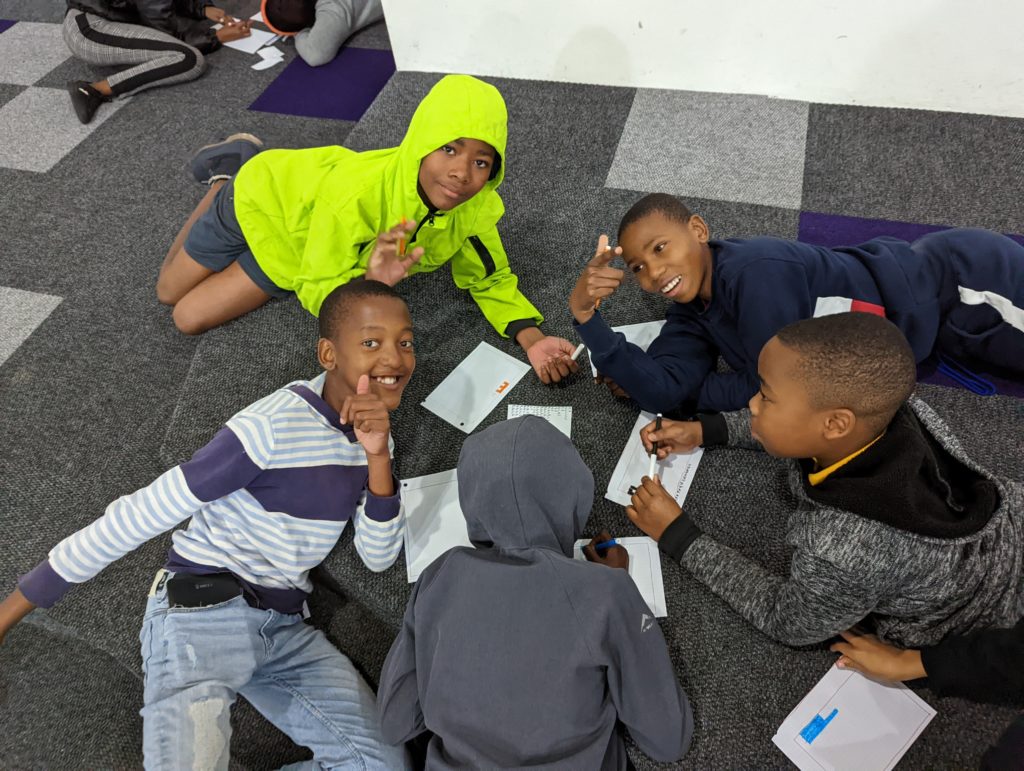
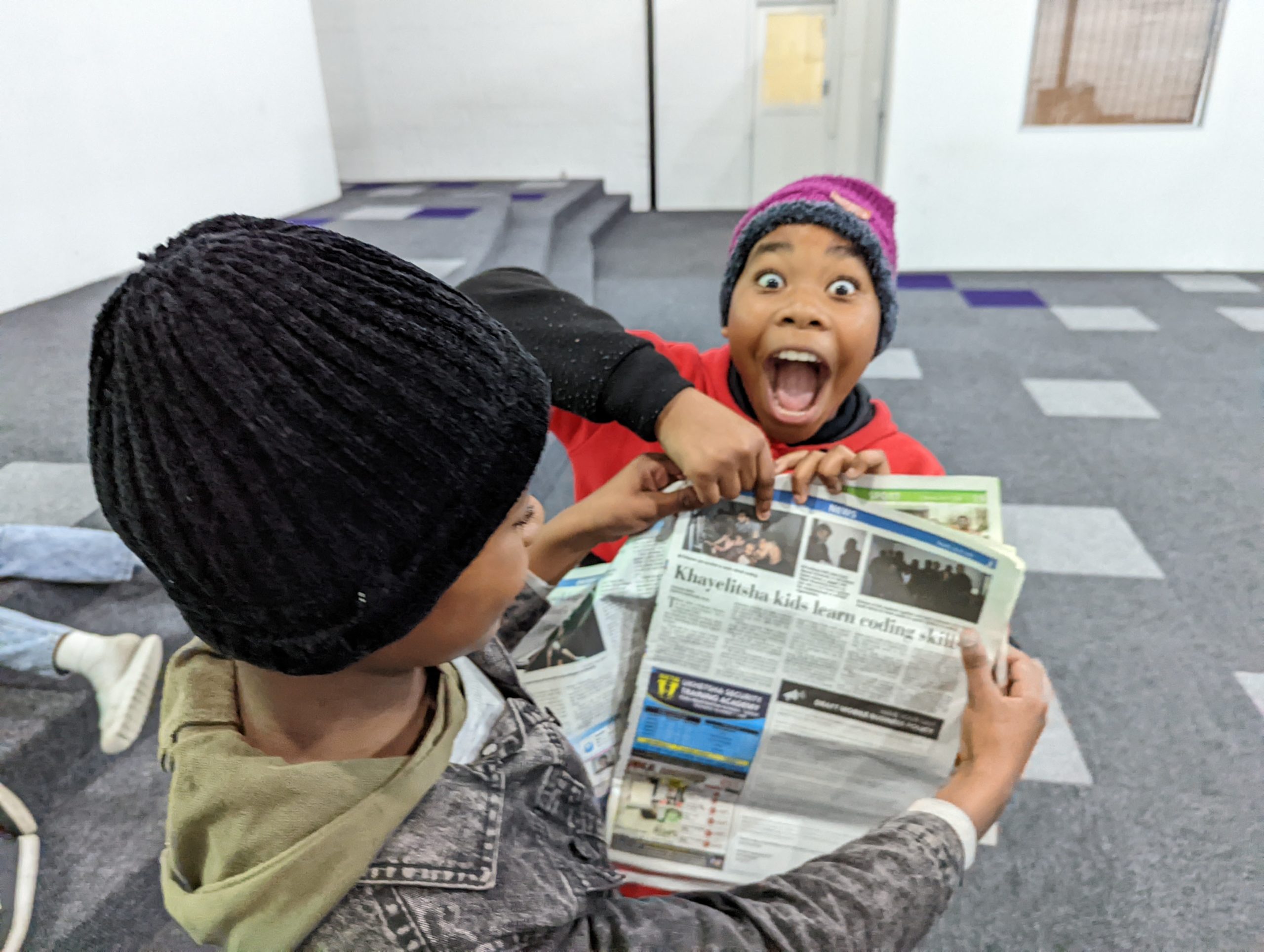
“It made them realize there’s so much more to the world, which is really what you want to get from a trip abroad,” Dr. Morrissey said. “Seeing the kids and how they lived and how different it was from their own experiences growing up, it made them appreciate that more and the great capabilities these children have if only they get the opportunity to show it.”
Rising senior Larson Evans, a computer science major, visited South Africa as a child with his family, and Mercer On Mission allowed him the opportunity to return with a new objective.
“It’s a beautiful place, and we could go with a purpose to help the community,” he said. “We could help teach what we learned in class and help bring different skills to people who may not know what’s out there.
“It feels good to help people discover something that can help make their lives better. I felt like it helped me to see how fortunate I am to have access to all of these skills and be able to teach others.”
The Mercer team hopes to continue its work this year and remain in touch with the Cape Town students. Through the Replit online classroom, they can keep on providing computer science lessons for them. Dr. Allen said the Mercer students are very motivated to continue their teaching. In addition, Dr. Allen and Dr. Morrissey hope to conduct formal research on computer science training in impoverished areas.
Featured photo: The Mercer group is shown in Kirstenbosch National Botanical Garden. Courtesy Mercer on Mission
